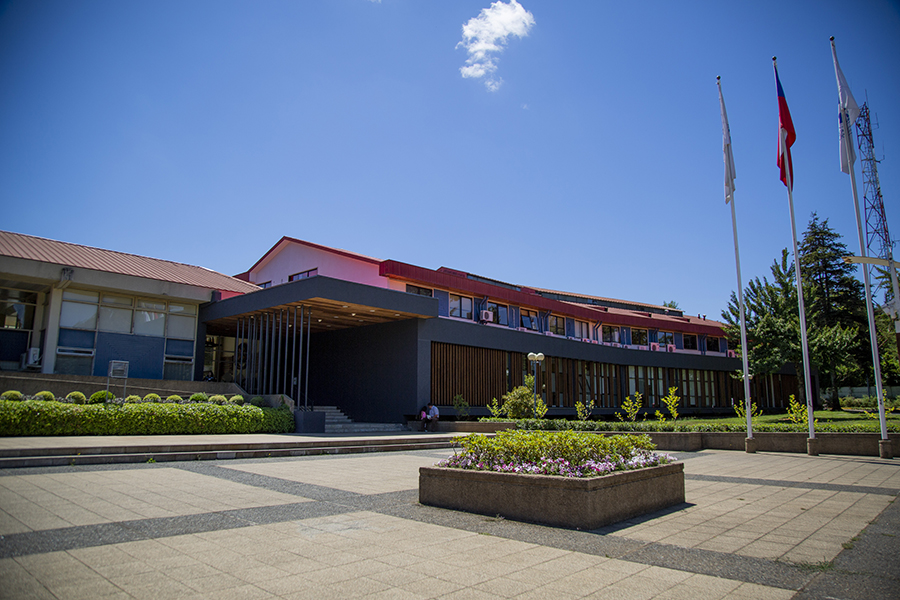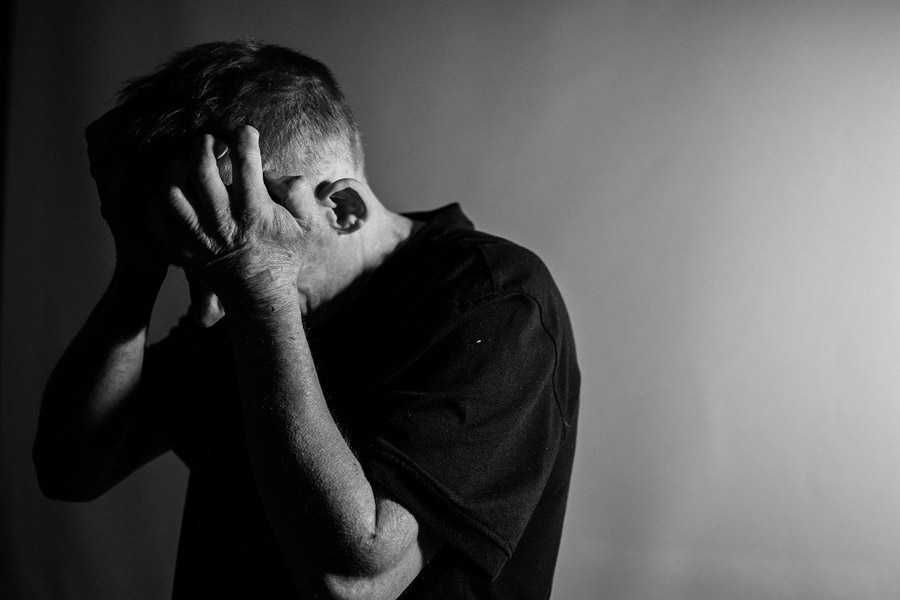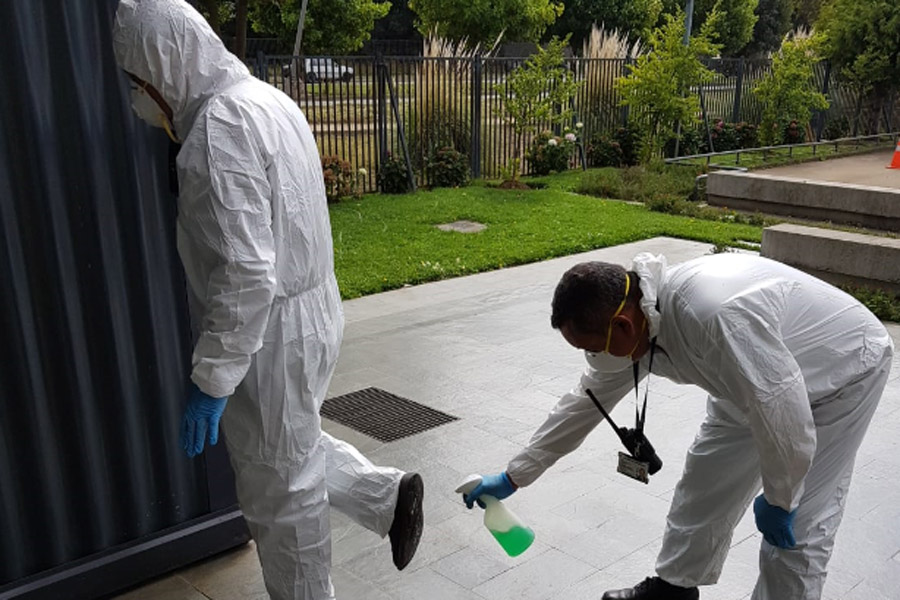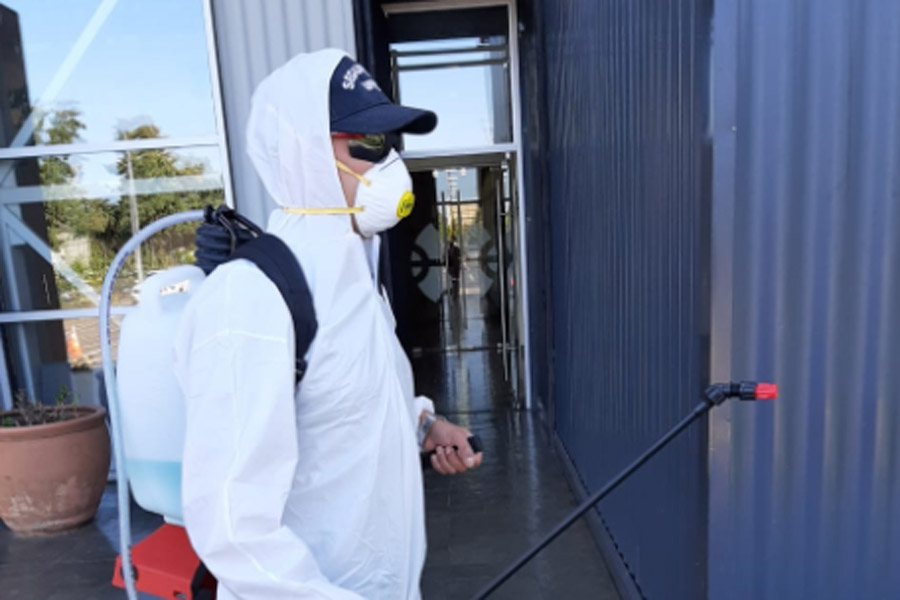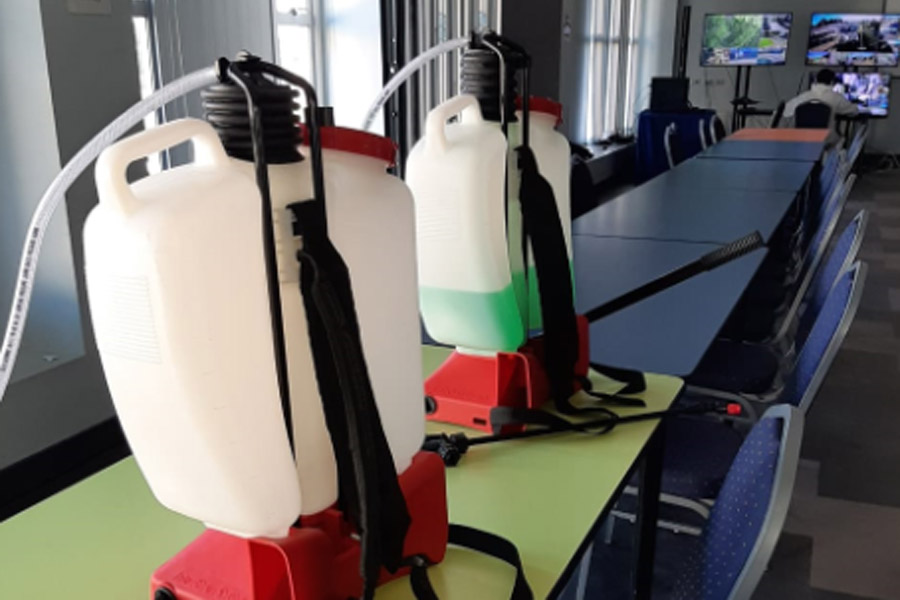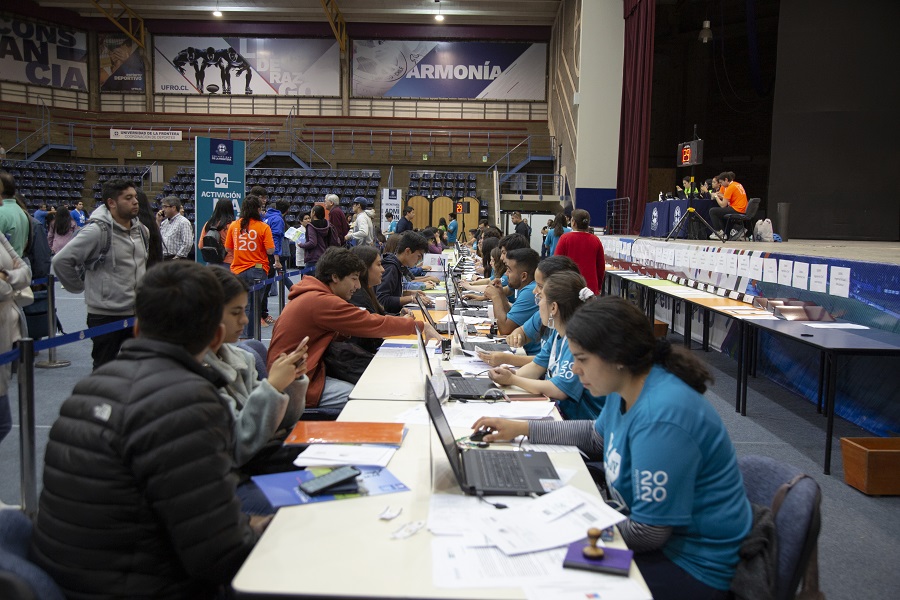|
|
Dear University Community, We would like to inform you that we maintain the preventive suspension of all academic and administrative activities in accordance with the total quarantine ordered by the authorities of the municipalities Temuco and Padre Las Casas. This measure is equally effective for our Campuses in Angol and Pucón. Kind regards, Temuco, Chile, March 31, 2020 |
|
Frustration, anger, fear, paranoia and other feelings are often present in those who must comply with mandatory self-isolation in response to Covid-19 and in order to prevent the spread of coronavirus. Dr. Marianela Denegri Coria, an academic staff member at UFRO, talks about scopes and recommendations to overcome these feelings. |
Social distancing is one of the measures that have been implemented in most countries since the COVID-19 outbreak. This leads people to face moments of uncertainty that can affect their mental health, generating anxiety and even panic-like symptoms. Any change in a person's routine can be stressful, although the level of stress will vary according to age, personality and work habits. For example, people who regularly perform repetitive or routine activities will find it more difficult to adapt to a different and unstructured situation, while those who have a frequently changing or rather solitary job, as in the case of most researchers, will have less problems in adapting to a different and unstructured situation or to remote work. For Dr. Marianela Denegri, who has a PhD in psychology and is the director of the Scientific and Technological Nucleus for Social Science and Humanities (Núcleo Científico Tecnológico en Ciencias Sociales y Humanidades) at the Universidad de La Frontera (UFRO), the most complex issue is social distancing. The level of difficulty will depend directly on each one’s circumstances, whether the person lives with his or her family or alone and if he or she has other networks on the outside. It will also depend on the person's age. Self-isolation is not the same for a senior citizen, who requires social support and experiences this situation as a great threat, as for a younger person, who is able to remain remotely connected to his or her social ties due to technological literacy. This implies that, depending on a person's characteristics, the required level and type of support will be different. However, the most significant measure against coronavirus is self-isolation. HOW DO WE EXPLAIN THE SITUATION TO OUR CHILDREN? In the case of our children, the most complex thing is to explain to them what is happening and how we can handle the situation, without scaring them, since they cannot handle this kind of fear. The most important thing is that the parents inform themselves first, with reliable and scientifically founded data, before giving explanations to their children. This way they can avoid scaring them, transmitting myths or other contents that would make the adaptation of a child to the new situation even more complex. “It is important to start with the children's own knowledge and to ask them what they think is happening. If they don't know, first explain, in simple words, what viruses are, and then describe how this particular virus is transmitted from person to person, and that we have to take care of ourselves and our family by staying at home and being careful about our hygiene. It can be fun to teach them, for example, how to wash their hands with a song,” the specialist said. “It is also important not to hide the situation from them. Children have the right to be informed,” she added. “It is important to give them opportunities to express their fears and emotions, for example, through drawing and then talking about it. On the Internet and in social networks there are also audiovisual resources that can help us to better communicate these issues to them.” WHAT WILL HAPPEN AFTER LOCKDOWN? It will not be easy to return to normal life, especially since we do not know how long the period of social distancing will last. In addition, given the emotional burden and possible life-threatening episodes such as being infected or having close family members who are sick or even in extreme situations, it is likely that some people may require the assistance of specialists in order to return to their daily lives. Dr. Marianela Denegri explains that “we must be prepared”, because depending on the intensity of the experiences people undergo during this situation and its extension, some people may suffer episodes of anguish, depression and even post-traumatic stress. Therefore, “the work environment should consider a strategy of reintegration depending on the individual's situation. When people are aware of this support, it may help them to handle the return to their normal lives better. Even those who do not suffer from traumatic events during this period will also need a time to readjust and progressively return to work.” The important thing is that we must be aware that this crisis will pass and that we must take care of ourselves during it and also prepare for when everything returns to normal, because many aspects of the world are likely to change as well. HOW TO COPE WITH SOCIAL DISTANCING In order to cope with social distancing during the COVID-19 pandemic, the UFRO researcher invites everybody to put the following recommendations into practice: 1. Just accept that we are facing a crisis that affects all of us, and that we must take care of ourselves in order to care for others.
Written by: UFRO Communications Office
|
Press release from the Rector’s Office: Suspension of on-site administrative and academic activities
|
Preventive suspension of on-site administrative and academic activities because of COVID-19 pandemic |
Dear University Community, Considering the evolution of the coronavirus (COVID-19) pandemic to phase 4 in Chile, the Universidad de La Frontera decided to suspend all on-site administrative and academic activities as a preventive measure, except essential or critical tasks for the appropriate maintenance of the university. This measure will be effective from Tuesday, march 17 to march 31, both dates included.
|
|
The aim of this preventive measure is to sanitize the University's facilities, especially those for common use. |
On monday, march 16, the Chilean President Sebastián Piñera declared that Chile is in phase 4 regarding the COVID-19 pandemic, due to a significant increase in the number of cases in the country. So far (march 23) there are 746 cases in Chile, and worldwide this virus has surpassed 16,000 deaths and more than 360,000 infections. In response to the situation, the Universidad de La Frontera (UFRO) decided on march 16 to suspend all administrative and academic activities, which allowed to take additional measures with the aim of reducing the risk of infection, such as sanitizing all university facilities. This preventive measure was led by the Office for Risk Prevention and the Emergency Committee of UFRO. For the disinfection a quaternary ammonium compound, as it is also used in hospitals and different industries and which eliminates all types of fungi, bacteria and viruses, was used. The sanitization was done in all of the University's facilities, especially in the spaces of common use, such as stairways and corridors, as well as in the vehicles that are being used. The only exception are those laboratories that work with microorganisms, in order to avoid putting at risk the research tests that are carried out there. “This process achieves to eliminate bacteria, fungi and viruses after five minutes of applying the disinfectant agent. The time the compound remains on the surfaces will depend on the manner in which the areas are re-entered. That is why we must avoid re-entering the sanitized areas unless it is strictly necessary, but ideally, the University should not be entered in the next 10 to 15 days," said George La Clerq, a risk prevention engineer of the university. The security guards, whose work spaces have also been sanitized, must wear a special suit, a face mask, gloves and use alcohol gel. In addition, any person that enters the Aula Magna to participate in meetings related to the contingency must comply with the same requirements mentioned above, and disinfect their shoes. It is worth mentioning that quaternary ammonium is also used to disinfect the spaces of the University where the meetings in relation to the contingency are held, 1 hour before and 1 hour after each meeting. “Together with the UFRO Office for Risk Prevention and the Emergency Committee, which is led by the Vice-rector for Administration and Finances, we are evaluating whether to carry out an additional disinfection in the next few weeks or a couple of days before returning to normality. The decision will be taken depending on the development of this contingency", concluded La Clerq.
Written by: UFRO Communications Office
|
|
The enrollment process lasted three days and took place at the Olympic Stadium of the Universidad de La Frontera, where more than two thousand new students enrolled, filling 100% of the university’s vacancies during the first stage of the process. |
The Universidad de La Frontera (UFRO) finished its enrollment process for new students in 2020, which was marked by the great efficiency and velocity of all staff members, with 100% of its vacancies for the selected candidates in regular admission filled. The enrollment process lasted three days and took place at the Olympic Stadium of the UFRO, where more than two thousand new students enrolled, which were preselected in the admission 2020 process, filling 100% of the university’s vacancies during the first stage of the process, without having to call candidates of the waiting lists. “In general, this university has had a very successful enrollment process, thanks to the support of all units that participated in it. One of the keys is our quality which is associated with the six years of accreditation we achieved. We have a great reputation among the national and international community and that plays in our favor. These young people and their families trust our university and therefore decided that they want to study here,” said Pamela Ibarra, the Vice-rector for Undergraduate Affairs. Another fundamental fact regarding this successful result was the deployment of capacities and great coordination of the different units that participated in the process: registration teams, cashiers, staff members of the Offices for Program Promotion, Student Development, Comprehensive Training, IT, Institutional Analysis, Finances, Communications, the programs PACE and I Want To Be A Teacher, general services staff and the staff of the Aula Magna and the Olympic Stadium, who provided the required spaces for a perfect process implementation. Over the following days, the management tasks will be related to the registration retraction process, while the new students who applied for state benefits and socioeconomic accreditation can continue the process at the Aula Magna of UFRO.
Written by: UFRO Communications Office
|





